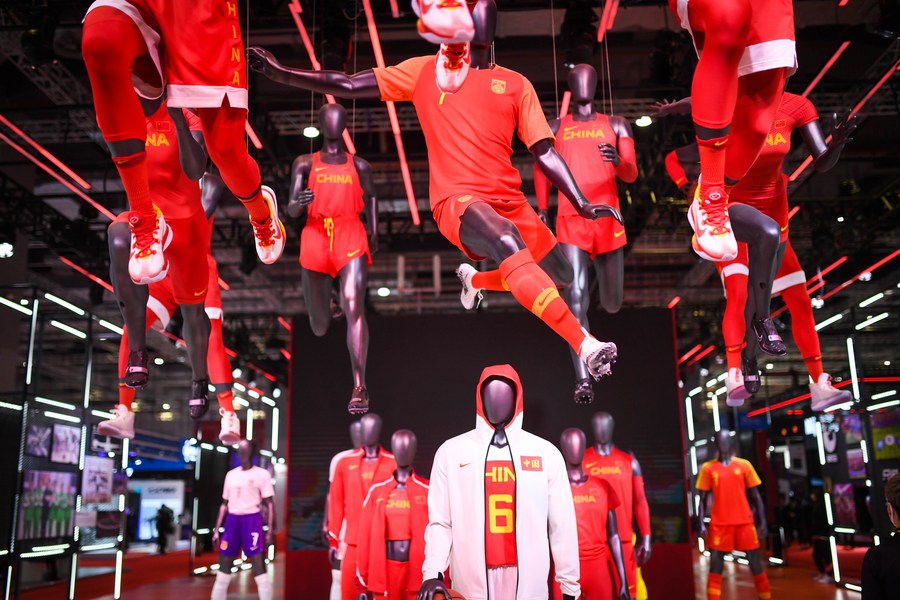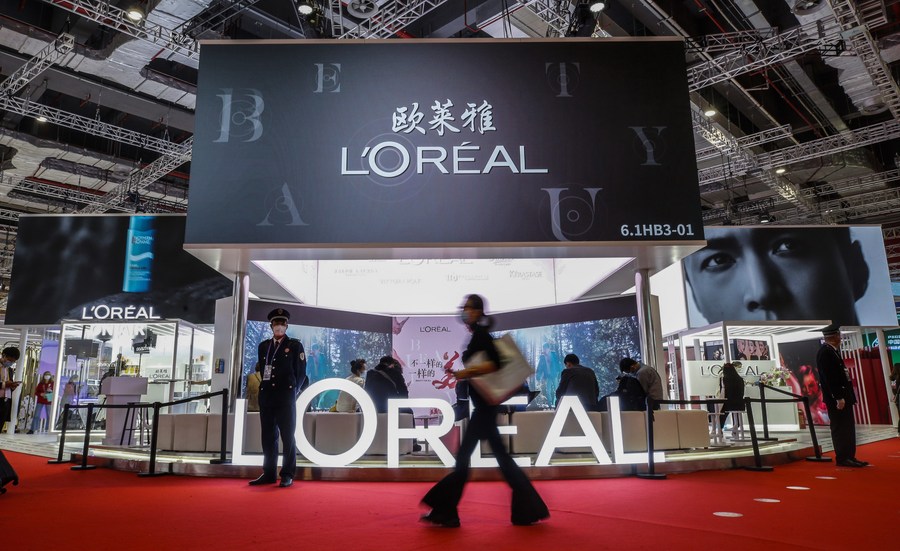How trade connects the world -- a glimpse of Chinese market at CIIE
With partners now in over 80 countries, Israeli company Watergen, which develops water-from-air solutions, has greatly expanded its business relations after attending the second China International Import Expo (CIIE) in Shanghai last year.
Platform to build bonds
Aiming to turn the Chinese market into "a market for the world, a market shared by all, and a market accessible to all," Chinese President Xi Jinping has said that the CIIE acts a major platform for international procurement, investment promotion, cultural exchange and open cooperation.
Photo taken on Nov. 7, 2020 shows the booth of Nike at the Consumer Goods exhibition area during the third China International Import Expo (CIIE) in Shanghai, east China. [Photo/Xinhua]
To make the best use of the platform to build cross-border trade bonds, entrepreneurs who could not attend the expo tried various ways to tap China's growth, which in many ways means global trends as well.
In a Kazakhstan booth, potential buyers communicated online via 35 tablet computers with exhibitors of the country, an attraction at the expo.
At a booth displaying Argentine beef, Sebastian Bendayan, who flew 30 hours to Shanghai with four member of his beef promotion association, has been busy receiving scores of visitors at the exhibition as he had to represent another 54 members who couldn't come. Big progress has been made, he told Xinhua.
With a total population of 1.4 billion and a middle-income group that exceeds 400 million, the Chinese market is viewed as the most promising in the world. Moreover, the spillover effect of China's "dual circulation" development pattern has benefited international companies' performance beyond China.
A visitor walks past the booth of L'Oreal at the Consumer Goods exhibition area during the third China International Import Expo (CIIE) in Shanghai, east China, Nov. 7, 2020. [Photo/Xinhua]
Noting that more than 50 percent of L'Oreal's sales in China come via e-commerce, Jean-Paul Agon, CEO of the cosmetics giant, said that "We are learning a lot in China and thanks to the learning that we have in China, we are improving our performance in e-commerce in all the countries of the world."



